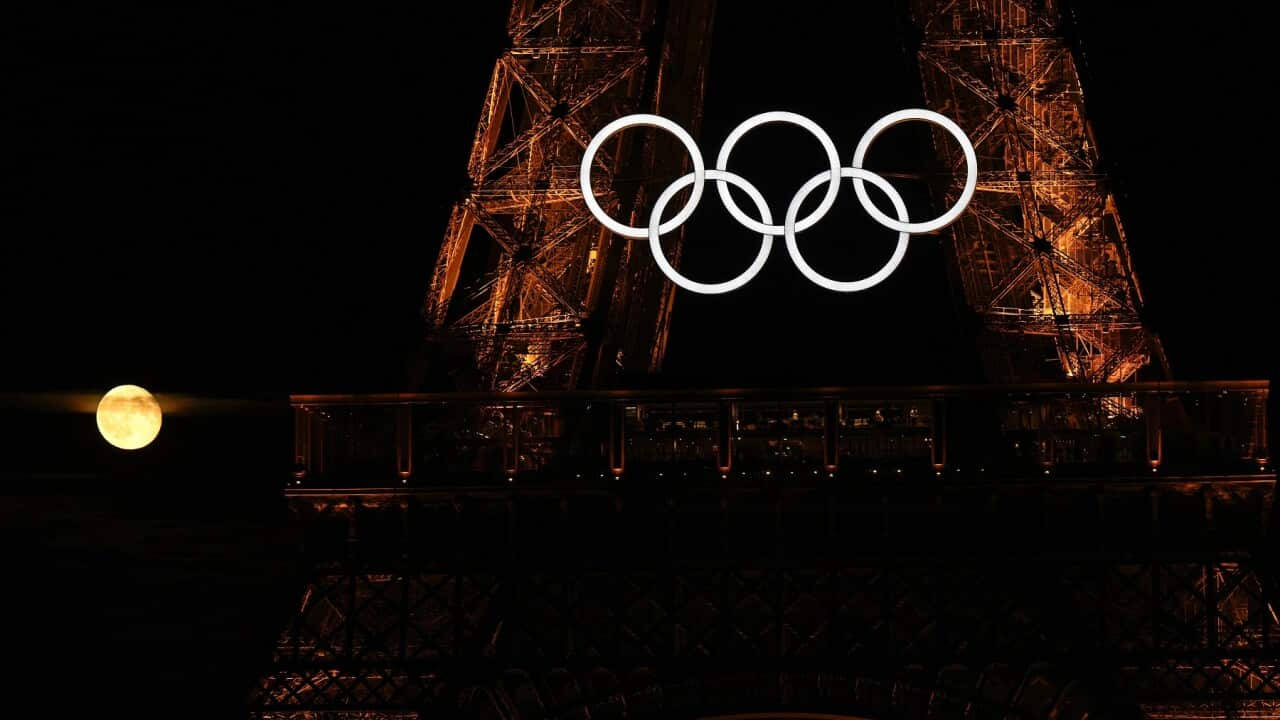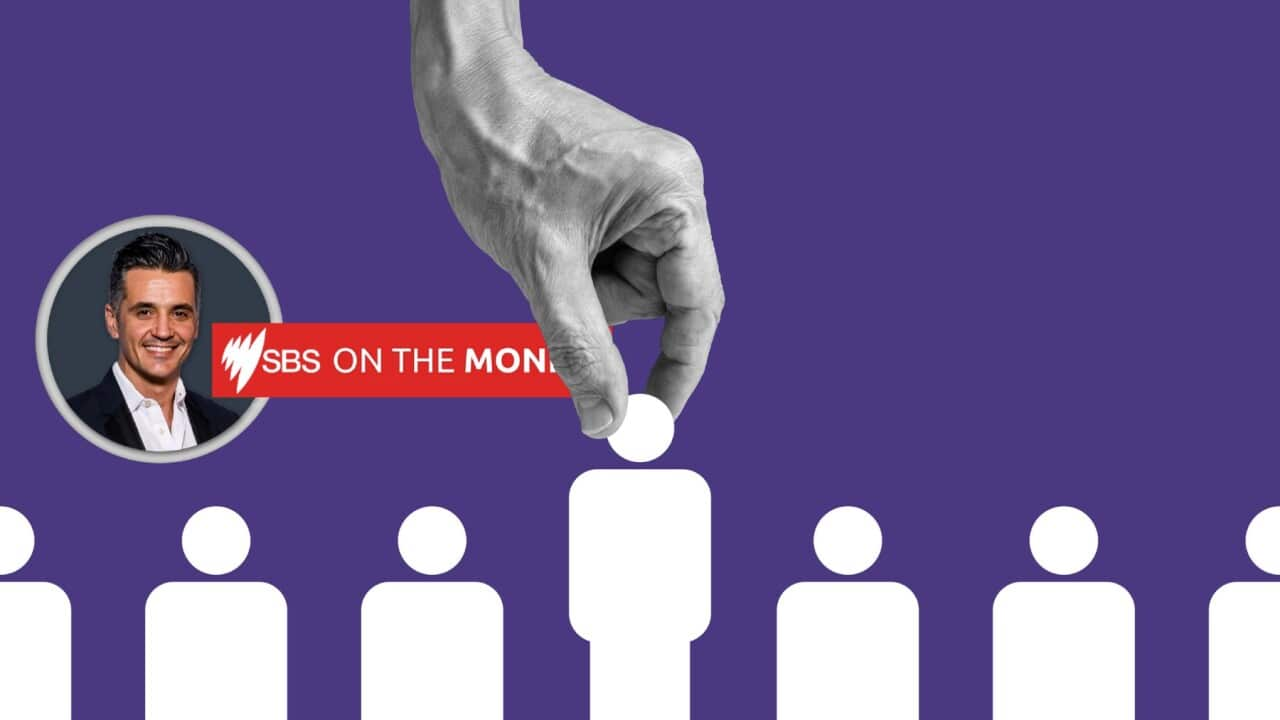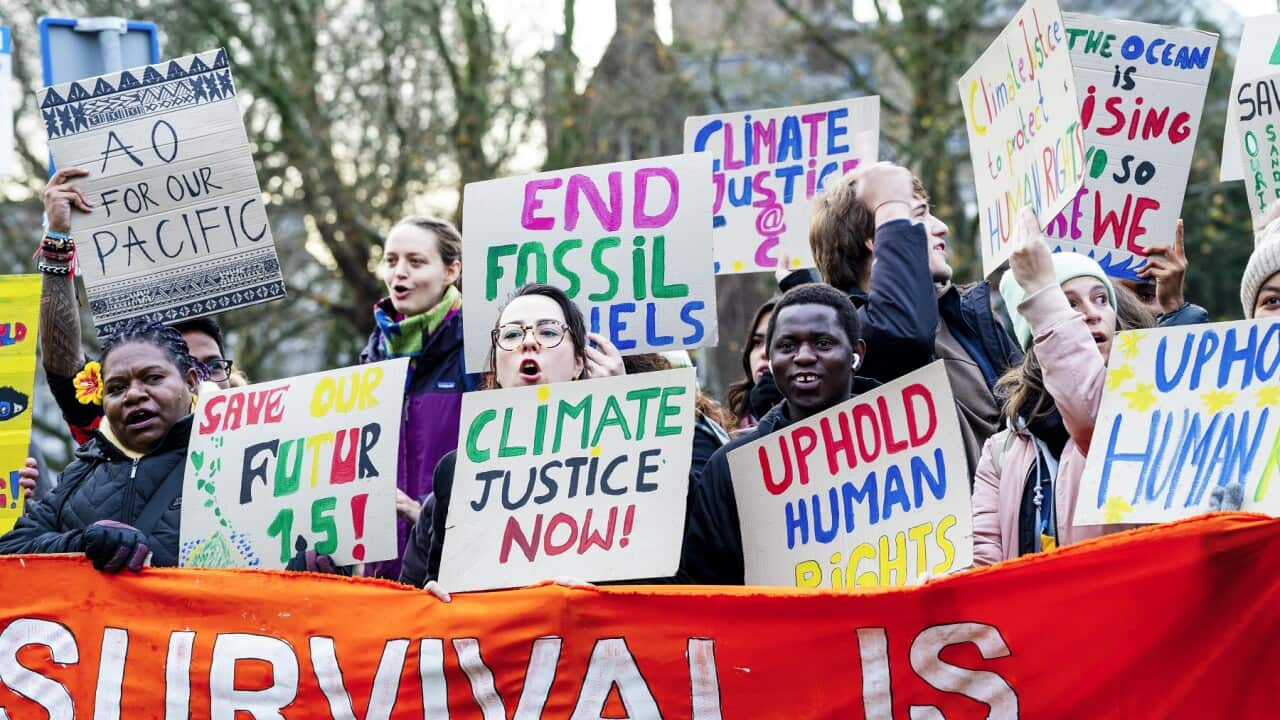TRANSCRIPT
The Olympic Games has always been considered as one of the world's great sporting events.
The Games provide an opportunity for all nations across the world to come together and challenge one another, in the spirit of fair play, as originally promoted by the ancient Greeks when they started the concept of the Olympics.
Yet on several occasions, it hasn't been the athletes, or their achievements, that has made the headlines.
Richard Cashman is an Adjunct Professor at the University of Technology in Sydney.
"In 1968, two Americans, John Carlos and Tommy Smith, gave a 'Black Power' salute when they won the 200 metres or won first and third (place). And that was not approved as appropriate activity. The IOC didn't like that, nor did the American Olympic Committee. And that as the end of their career."
Professor Cashman's example is only one of many incidents that have taken place during the four weeks of an Olympic event.
Protests, boycotts, disqualifications of athletes for political reasons, and even acts of terrorism have all occurred in previous Olympics.
But, what is it that attracts so much attention to this sporting event compared to others of its kind, such as the FIFA World Cup, the World Athletics Championships or the Super Bowl?
Dr Catherine Ordway, Associate Professor and sports integrity research lead at the University of Canberra, responds.
"Well I think that historically and even back at the ancient Olympics, countries have used mega-events like the Olympic Games and other world championships to demonstrate nationalism and national superiority. And there have been some glaring examples with millions and now we're seeing these days, billions of dollars have been poured in to showcase a nation and to demonstrate both their athletic prowess and the beauty and the advantages of the country that is hosting the event."
Yet it can be argued that these incidents could be overshadowing the efforts of the athletes.
Who can forget the 1936 Olympics in Berlin, which were used by Adolf Hitler's Germany as a vehicle to spread their Nazi message?
Or the 1976 Olympics in Montreal, where more than twenty African nations made a last minute boycott after their request to ban New Zealand was denied by the International Olympic Committee [[I-O-C]].
Chief Economist at the Centre of Sport Business and Society at the University of Technology in Sydney, Tim Harcourt, says it's hard to isolate sports from politics.
"It's interesting, I think individual athletes can do it. They are representing their country, on the other hand, so there are consequences. But I don't think you can stop people expressing themselves freely. But I think all of them probably have a regard that they have a responsibility as well."
With the global situation looking more unstable than it has in decades, it is almost certain that political issues will find a place in this year's Olympics as well, if they haven't already.
Russia's invasion of Ukraine has forced the I-O-C to impose a ban to almost all athletes from Russia and its ally, Belarus, with the exception of a small group of competitors who will participate in the event as neutrals.
Israel's war in Gaza, the U-S election, and climate change are also threatening to take the spotlight away from the efforts of athletes.
Dr Ordway says the I-O-C understands it's difficult to separate these ongoing events from the Olympic Games, but it has set a number of guidelines.
"The International Olympic Committee has reflected the views of other athletes actually, to say that there are some areas that should be sacred and respected for the event. And that means the field of play and the medal ceremony process is where athletes should restrict their freedom of speech and not protest. That the protests should be limited to speaking to the media, doing their press conferences, on their own social media and their own platforms so that they have freedom to speak about issues that they feel passionately about but they should respect the other athletes and their ability to both perform at their highest levels on the field of play, and then afterwards, during the medal ceremony."
Professor Cashman argues that the treatment of athletes from countries like Israel and Russia may be unjust.
"They should separate the athletes from the people, (Israeli Prime Minister Benjamin) Netanyahu and the other leaders of the country. But I'm not sure whether that will happen, the extent to which that will happen, but it's not fair. They're just individual athletes and they happen to come from a certain country which may have incurred the hostility of the IOC."
There's another type of incident that could threaten to shift the public focus away from the sporting perspective of the Olympics entirely.
And it has occurred in the past.
During the Munich Olympics in 1972, eight terrorists affiliated with the Black September terrorist organisation snuck into the Olympic village, initially kidnapping nine Israeli athletes and murdering another two.
After a lengthy negotiation with German police, all eleven athletes ended up dead.
France is no stranger to terrorism, with the most recent incident taking place in December, when a 26-year-old man stabbed one person to death and injured another two in the streets of Paris.
Despite the high frequency of terror events in the city of light, Professor Harcourt says he believes the Olympics will go on unhindered.
"France was really keen to host the games because they actually bid for them right after a spate of terrorist incidents. So I think they want to show that the French nation is strong. France has a vibrant nationalism and a internationally diverse community, a very multicultural community that is able to forge itself together. And so, I think they want to show that they can do that in practice. And they're willing to take that risk. I imagine that they will have pretty significant security measures in place over this period of the Olympic Games."
It seems as though there are opposing arguments on the potential separation of the Olympic Games from ongoing global events.
Yet one thing remains certain.
From Saturday [[27 jul]] onward, the entire world's eyes will be focused on Paris.
Whether we'll have great athletic records or significant human rights movements to remember from this edition of the games, remains to be seen.













